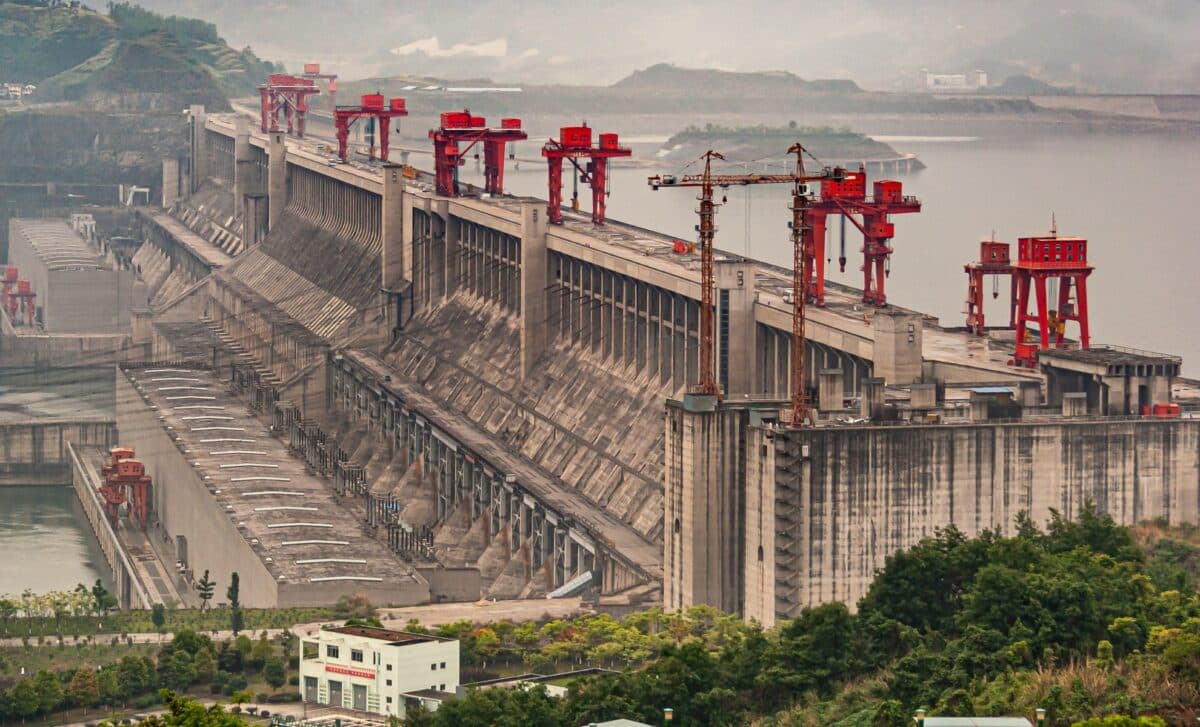A dam so massive it can tilt the planet: NASA has confirmed that the Three Gorges Dam in China has physically shifted Earth’s axis and slightly lengthened the duration of a day. By redistributing an enormous volume of water, the hydroelectric megastructure subtly altered the planet’s rotation, an effect measurable with scientific precision.
The Three Gorges Dam, completed over 18 years, is the world’s largest hydroelectric project. It holds back around 10 trillion gallons of water from the Yangtze River, generating vast amounts of electricity and providing critical flood control. Yet its scale also produces unintended global consequences, including geophysical impacts confirmed by NASA’s Goddard Space Flight Center.
This development draws attention not only to the scope of human engineering but also to the complex relationship between infrastructure and planetary systems. While the dam’s benefits are evident in energy production and river management, experts stress the importance of understanding how such transformations affect Earth’s physical equilibrium.
Explosive Tensions Between OpenAI and Microsoft: Is This the End of ChatGPT ?
Redistribution of Mass has Altered Earth’s Rotation
Between 1994 and 2012, the construction of the Three Gorges Dam transformed a section of the Yangtze River into a reservoir containing approximately 39.3 billion cubic meters of water. According to scientists at NASA, this large volume of stored water has shifted Earth’s rotation axis by nearly two centimeters—equivalent to about three-quarters of an inch. Though seemingly minor, this shift is significant given the planet’s massive scale, reports CMU.
The added mass is concentrated above sea level, exerting pressure on Earth’s crust. This affects the planet’s moment of inertia, which governs the speed at which Earth spins. The phenomenon has been compared to a figure skater adjusting their arms while spinning—mass moving away from the rotational axis causes a deceleration. In this case, the dam’s effect has led to a measurable slowdown in Earth’s rotation by approximately 0.06 microseconds per day.
Impacts Echo Previous Seismic Events
This is not the first time Earth’s rotation has been influenced by a redistribution of mass. Similar effects were documented following the 2004 Indian Ocean tsunami, where tectonic shifts also caused changes in Earth’s axis and slightly shortened the length of the day. In both instances, the mechanism is the same: a sudden or large-scale shift in mass alters how the planet spins.
As reported by NASA’s Earth Observatory, the impact of human-engineered projects such as the Three Gorges Dam is now considered comparable to natural disasters in terms of their ability to influence geophysical parameters. Unlike tsunamis or earthquakes, these effects unfold gradually, yet the end result is detectable by modern instruments.
Environmental Consequences and Displacement
Beyond geophysical changes, the Three Gorges Dam has brought sweeping environmental and social transformations. The reservoir’s creation led to the displacement of approximately 1.3 million people, requiring entire communities to relocate. According to reports referenced in the original article, the dam has altered 370 miles of terrain and significantly disrupted local ecosystems.
In engineering terms, the structure includes advanced features such as lock systems and a ship elevator capable of lifting vessels over 330 feet in height. It produces over 80 billion kilowatt-hours of electricity annually, significantly reducing China‘s dependence on fossil fuels. Nevertheless, experts highlighted by Geophysical Research Letters in 2010 have called for a careful assessment of such projects’ broader consequences.








